University of California San Francisco
Give to UCSF-
-
UCSF Medical Center Ranks Among Nation’s Best for 2022-23
UCSF Medical Center has been ranked among the country’s finest hospitals in adult care by U.S. News & World Report’s prestigious Best Hospitals survey.
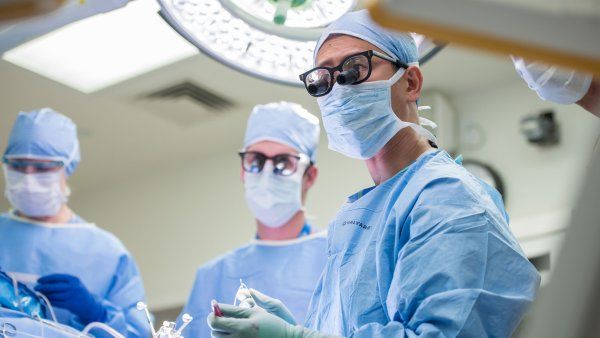
-
UCSF Benioff Children’s Hospitals Rank Among the Best for 2022-23
UCSF Benioff Children’s Hospitals have been recognized among the nation’s best pediatric medical centers in all 10 specialties assessed in U.S. News & World Report's Best Children’s Hospitals 2022-23, reflecting the caliber of specialty care the hospitals provide.
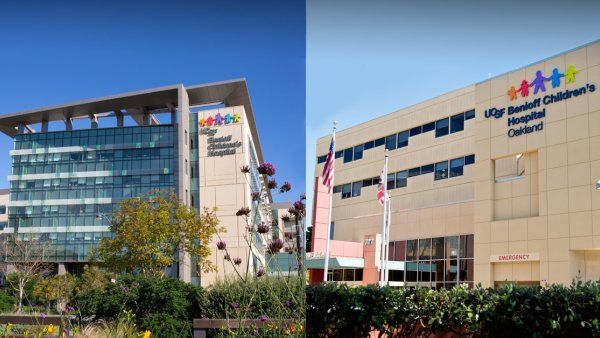
-
Get Back in the Game
UCSF sports medicine experts share their savvy on how to overcome injuries and stay active for life.
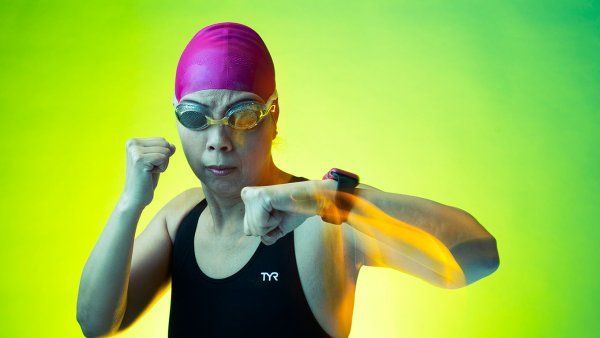
-
UCSF Mount Zion Re-Envisions Its Future as a Surgical Center for Bay Area
UCSF Medical Center at Mount Zion has been renovated and reopened as the new hub of UCSF’s adult orthopedic surgery services, offering patients expanded access to orthopedic specialty care.
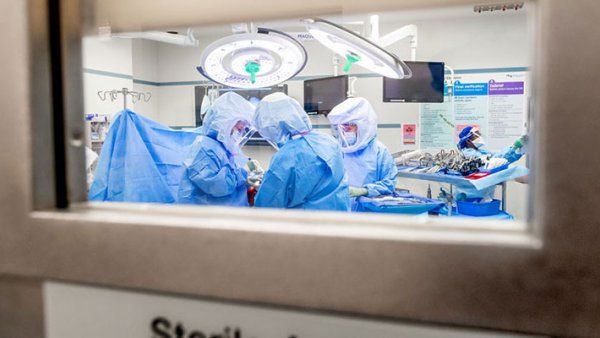
-
For These Clinicians, 3D Printers Are Changing Medicine
-
UCSF Medical Center Ranks 1st Nationwide in Neuro, Among Top 10 Hospitals for 2021-22
UCSF Medical Center has been recognized as the nation’s best hospital for neurology and neurosurgery, and among the country’s premier medical centers overall, in the 2021-22 Best Hospitals survey by U.S. News & World Report.
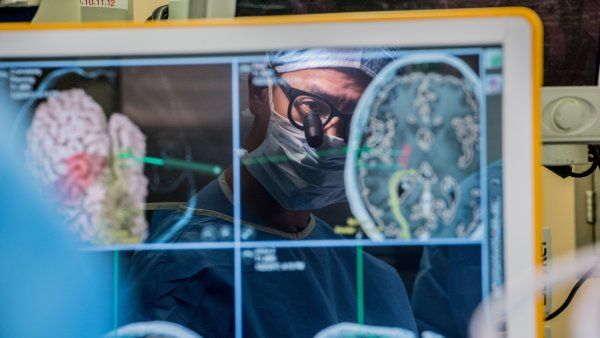
-
Millie Hughes-Fulford, the First Woman Scientist in Space, Dies at 75
Millie Hughes-Fulford, a UCSF scientist who flew in June 1991 aboard the first space shuttle mission dedicated to biomedical studies, died on Feb. 2 at the age of 75. S
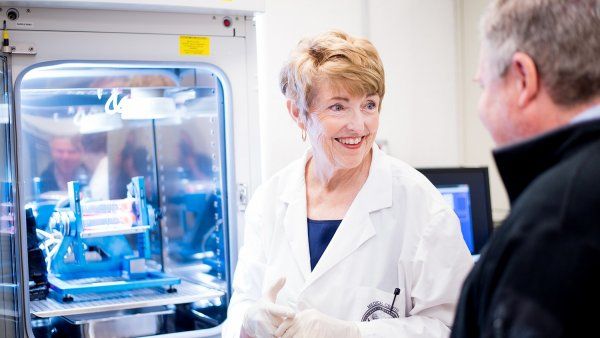
-
Most Infants Are Well Even When Moms are Infected by COVID-19
Infants born to women with COVID-19 showed few adverse outcomes, according to the first report in the country of infant outcomes through eight weeks of age.
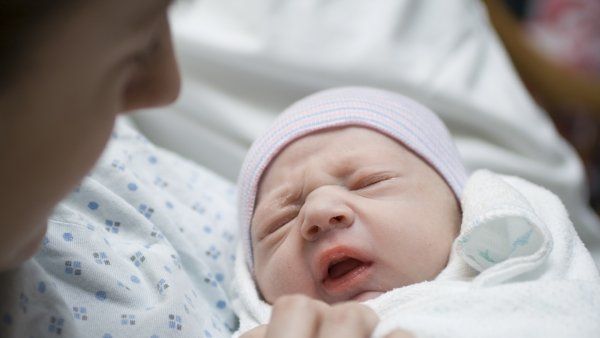
-
Lift Your Head and Lower Your Arms — You Might Just Feel Better
-
Keeping Trouble Out of WNBA's 'Wubble' Was the Goal for Bay Area Doctor
-
MEDIA ADVISORY: UCSF Health Serves as 2020 PGA Championship Medical Team
As the official medical provider of the 2020 PGA Championship in San Francisco, UCSF Sports Medicine staff will be on-site to provide general first aid and immediate medical assistance.

-
UCSF Medical Center Ranks Among Nation’s 10 Best Hospitals for 2020-21
UCSF Medical Center has been recognized as one of the nation’s finest hospitals in the U.S. News & World Report 2020-2021 Best Hospitals survey, ranking among the top 10 hospitals nationwide for the 22nd year.
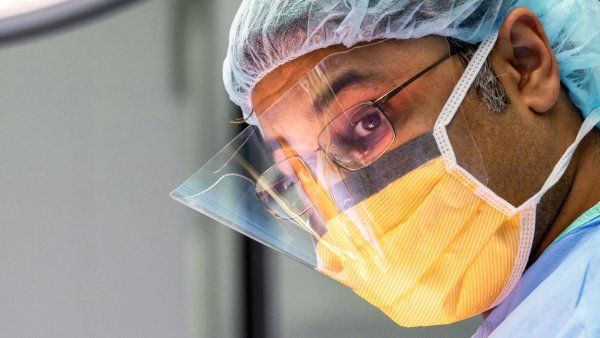
-
Two Projects Using Hydrogel Biomaterials to Stimulate Tissue Regeneration Move Forward with New Funding
Two innovative UCSF projects in hydrogel therapies to develop new salivary glands and restore muscle loss after facial injuries have received critical funding to move closer to clinical trials.
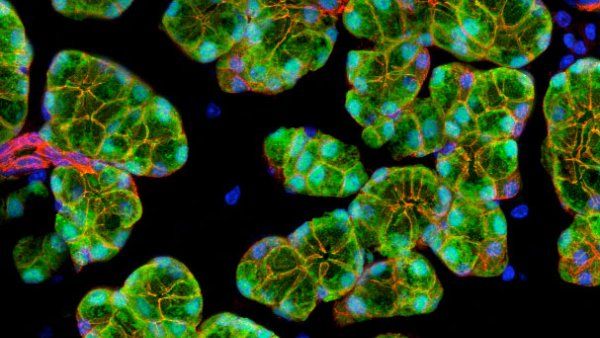
-
UCSF Benioff Children’s Hospitals Rank Among the Nation’s Best for 10 Specialties in 2020-2021 U.S. News & World Report
The annual U.S. News rankings serve as a guide of hospitals nationwide that excel in treating children with the most challenging diagnoses.
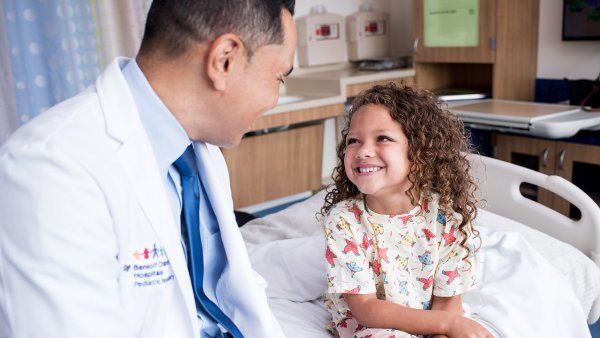
-
Lifesaving Face Shields for Health Care Workers are Newest 3D-Printing Project at UCSF
To meet the pressing need for personal protective equipment for frontline health care workers, a multidisciplinary team has mobilized UCSF’s 3D-printing infrastructure to engineer and produce thousands of face shields.
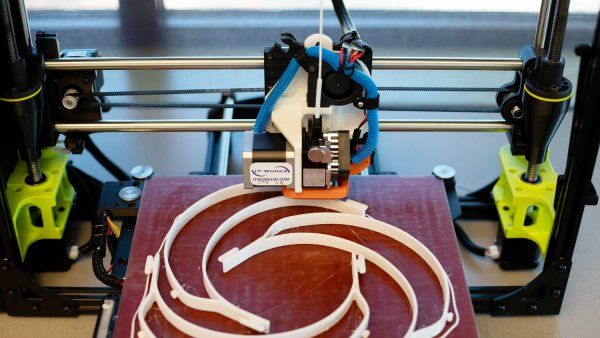
-
Ageless Muscles, Lab-Made Organs, and Other “Better” Parts
Scientists at UCSF are exploring how we can improve our bodies – now and in the future – with science that sounds like sci-fi.
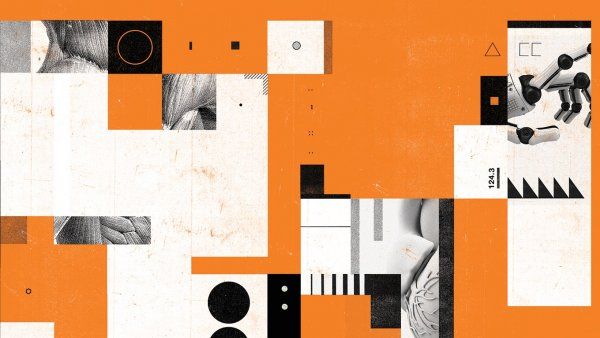
-
Sidelined: Youth Sports Injuries
-
MEDIA ADVISORY: UCSF Launches First Space Health Innovation Conference
UC San Francisco and the Translational Research Institute for Space Health are co-sponsoring the inaugural Space Health Innovation Conference to advance research and scientific understanding of how space travel impacts health.

-
‘If you’re gonna rodeo, you’re gonna get hurt’: Bay Area doctor helps riders bounce back
-
UCSF Receives 10 NIH Grants to Study Pain and Opioid Addiction
UCSF researchers have received 10 grants from the NIH’s HEAL Initiative, which aims to speed scientific solutions to stem the national opioid public health crisis.
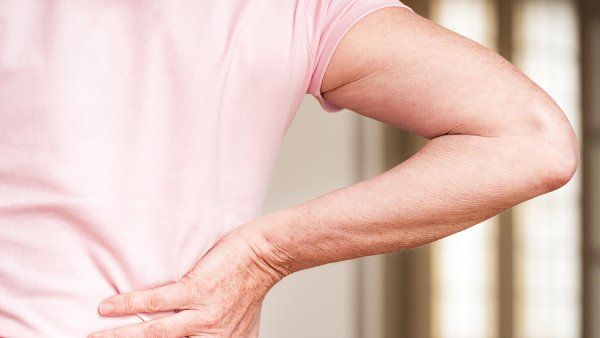
-
UCSF Launches New Clinic to Keep Athletes Heart Healthy
-
MEDIA ADVISORY: Cardiovascular and Orthopaedic Screenings to Former NFL Players
UC San Francisco is teaming up with the Heart, Obesity, Prevention & Education (HOPE) Program of the Living Heart Foundation (LHF) to increase awareness and improve the health of former National Football League (NFL) players.

-
UCSF Benioff Children’s Hospitals Excel in All 10 Specialties in 2019-20 U.S. News & World Report
UCSF Benioff Children’s Hospitals rank among the nation’s best in all 10 specialties assessed in the 2019-20 U.S. News & World Report annual survey of Best Children’s Hospitals.
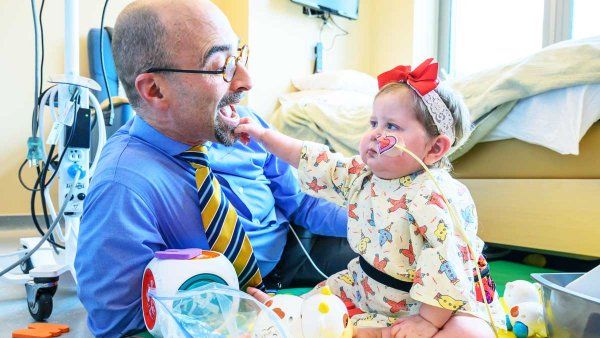
-
‘Super-Hero’ Stem Cells Survive Radiation to Regrow Muscles
Newly discovered radiation-resistant stem cells are normally rare and inactive (left), but they take on a major role in muscle repair when regular stem cells are damaged by radiation (right). Credit:
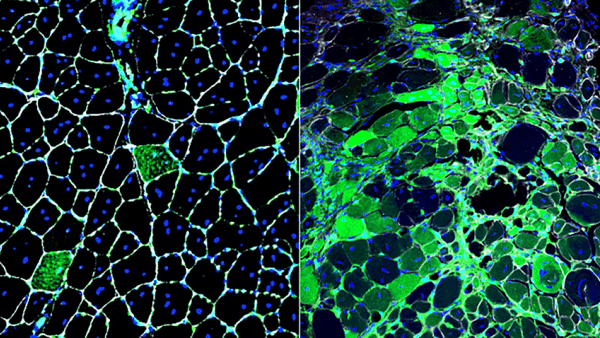
-
Keeping Patients Awake During Spine Surgery is Cutting Recovery Time in Half
UCSF is now offering some patients the options of local anesthetic instead of general anesthesia, which can help make surgeries faster and speed in the recovery process.
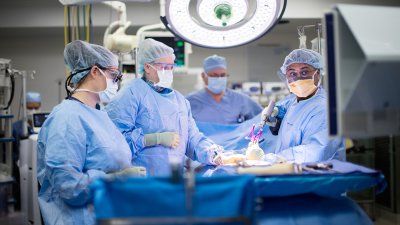
-
Ultra-Sturdy Bones, with a Surprising Origin, Suggest New Osteoporosis Approach
A handful of brain cells deep in the brain may play a surprising role in controlling women’s bone density.
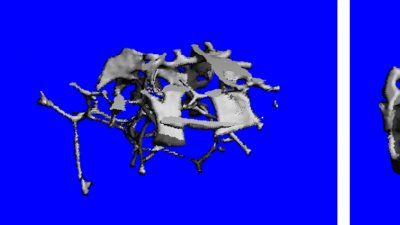
-
UCSF-led Consortium to Receive $3.45 Million from NFL to Study Traumatic Brain Injury
The NFL has awarded more than $3.45 million to a UCSF-led research consortium tasked with identifying the causes, risk factors, biomarkers and prognoses for patients with TBI.
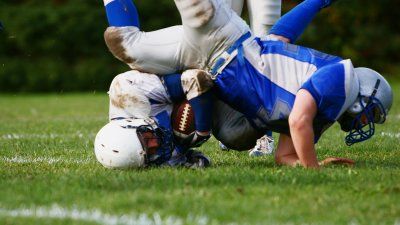
-
Bringing Artificial Limbs to Patients Who Need Them
UCSF researchers are talking to patients about what they want in artificial limbs with the aim of improving and speeding the FDA approval process.

-
Can Video Games Improve the Health of Older Adults with Schizophrenia?
Video games can offer a safe and easy way for a sedentary population to get started with exercise.
